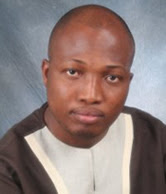By Augustina Brown
 |
| Flood on our roads make it difficult for people to use the roads |
Ghana has recorded a whole lot of cases in relation to floods which have claimed some lives, destroyed properties and rendered thousands homeless.
This case is being taken care of by the National Disaster and Management Organization (NADMO) as well as some security forces and the individual Ghanaian.
Our attention have been shifted to the flood and what they are causing in our communities, but have we sat to ask ourselves what this rain is causing in our communities apart from destroying properties, claiming lives and rendering people homeless?
We are aware of the recent floods in some of our communities caused by the heavy downpour.
The question is; is the rain causing only floods in our country?
The heavy downpour has resulted in the spread of different water-borne diseases like cholera, diarrhea, dysentery and even malaria.
Looking around our communities and towns, it could be seen clearly that the whole place looks nasty and dirty with refuse.
These refuse are washed from different towns and communities and they end up on our roads, in our gutters and even our various homes. There is the inability of sunshine to dry these refuse, so they cannot be burnt.
Our water bodies have been chocked with lots of refuse and have become very difficult for human consumption.
The downpour which causes flood, flows on our roads, gutters and various communities including our homes with refuse which chocks at particular places where mosquitoes breed and ends up in the spread of malaria.
Does that mean we Ghanaians do not burn our refuse in our various homes? Or do those refuse come from our dumping sites? What are the Zoom lion and other bodies that make sure the country looks clean doing about this situation. What do they do with the refuse they collect from our various homes?
We are all aware that refuse collected from our homes by the Zoom lions and others are not burnt but are rather gathered at certain places.
A typical example is the Oblongo dumping sites where refuse are dumped there and people residing at the same place. What happens to these people in this rainy season?
Malaria has been the increased sickness spread during the rainy season and Ghana is witnessing a whole lot this rainy season.
Malaria is transmitted throughout Ghana and the entire population is at risk. Malaria is a major cause of mobility and mortality directly contributing to poverty, low productivity and reduced school attendance.
According to the Ministry of Health (MOH), between 3.1 and 3.5 million cases of clinical malaria are reported each year and about 900,000 of these cases are children less than five years of age.
Another is the use of chemicals by farmers, factories and the individual. This act contributes greatly to the increase in the spread of diseases when it rains because the water flows along with those chemicals and enters or pollutes our rivers, ponds, lakes, lagoons as well as the sea which serves as major source of fish and drinking water. People who drink or eat from these sources become victims of some water-borne diseases.
Oils and other chemicals from automobile exhaust on our various roads also contributes to water pollution during the rainy season and are washed into our various water bodies and farms and help in the spread of diseases both from the water and farm produce. This could also result in low productivity in the country.
Our farmers are also contributing to the spread of diseases from our water bodies because of the use of animal wastes used in their farm for fertilizers.
Animal wastes are washed from farms in the rainy season and ends up in our rivers and streams, ground water and even some coastal waters where people get their water from.
Not only do rain wash away animal waste, but also waste of some Ghanaians who have cultivated the habit of dumping human excreta in and around our various water bodies contribute in the spread of diseases when they are washed into the rivers, lagoons, lakes and even the sea by the rain.
Places like the Kpeshie lagoon, Korle Lagoon and Odaw River all suburbs of Accra are typical example of places which has been turned into a dumping site for both refuse and human excreta.
This has negative implication on the aquatic life of the lagoon as well as on migratory birds that find a haven within the environs of the lagoon.
Ghanaians must learn to do the right thing. Dumping of refuse must be done at correct places and they must be burnt all the time.
The inability of refuse not being able to be burn is because of the increase number of plastics in the country.
We must learn to recycle our plastic wastes which are very difficult to be burnt.
Refuse in our various homes must also be burnt to help make the work of government bodies whose job is to make sure the country is free from dirt, very easier.
We should learn to keep our communities clean and free from dirt especially this rainy season because the spread of diseases is very high during rainy seasons.














